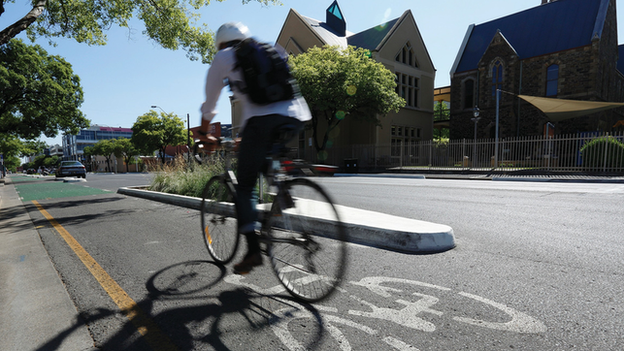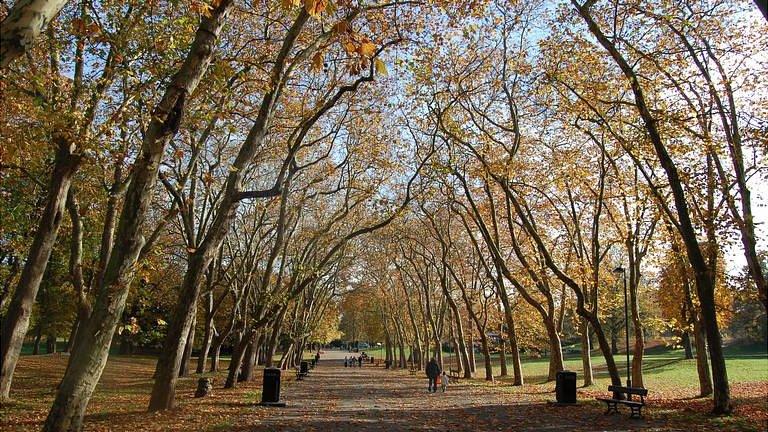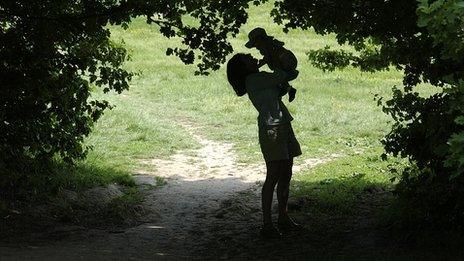Active cities 'boost bottom lines'
- Published

Providing cycling friendly infrastructure would encourage more people to get on their bikes, research suggests
Cities that actively promote physical activities enjoy an economic advantage, research has suggested.
It says areas designed for physical activities have increased retail activity and revenue, and lower healthcare and crime costs.
The report's authors describe active cities as urban areas with easy access via cycling or walking to parks, schools and workplaces.
The details have been presented at an Active Cities Summit in Bristol, UK.
The findings - compiled by a team from the University of California, San Diego - identified five "settings" in an urban environment that encouraged physical activity:
Open spaces and parks: ensuring residents lived near a green space; accessible and safe fitness trails
Urban design: mixed-used communities; streets designed for safe and enjoyable cycling and walking
Transportation: infrastructure to support cycling an walking; access to safe and reliable public transport
Schools: located near students' homes; recreational and exercise facilities
Buildings and workplaces: encourage physical activity, eg visible stairs etc
It added that studies that assessed the economic benefits of walking and cycling interventions provided an average return of £13 for every £1 invested. In the UK, the return was shown to be as high as £19.
'Eye opening'

Providing safe streets is one of the key ways to encourage people to become more active
Visible sporting events also positively affected residents' perception of the city in which they lived, the authors observed. They quoted a US study that found that nine out of 10 people said that cycling events made them view their home city in a more positive light.
The report, commissioned by UK charity Sustrans and global sports brand Nike, based its results on more than 500 findings from studies in 17 nations.
"We hope this research will open the eyes of government leaders to the many important benefits of designing cities to support active living," said co-author Chad Spoon from Active Living Research at the University of California.
"This includes economic benefits of increased home value, greater retail activity, reduced healthcare costs and improved productivity.
"A city's ability to compete depends on an active population," he added.
"The research on this is clear - it shows how an active city can be a low-cost, high-return investment."
- Published27 January 2015

- Published9 December 2014

- Published12 January 2014

- Published6 November 2013

- Published19 December 2012

- Published10 February 2012
